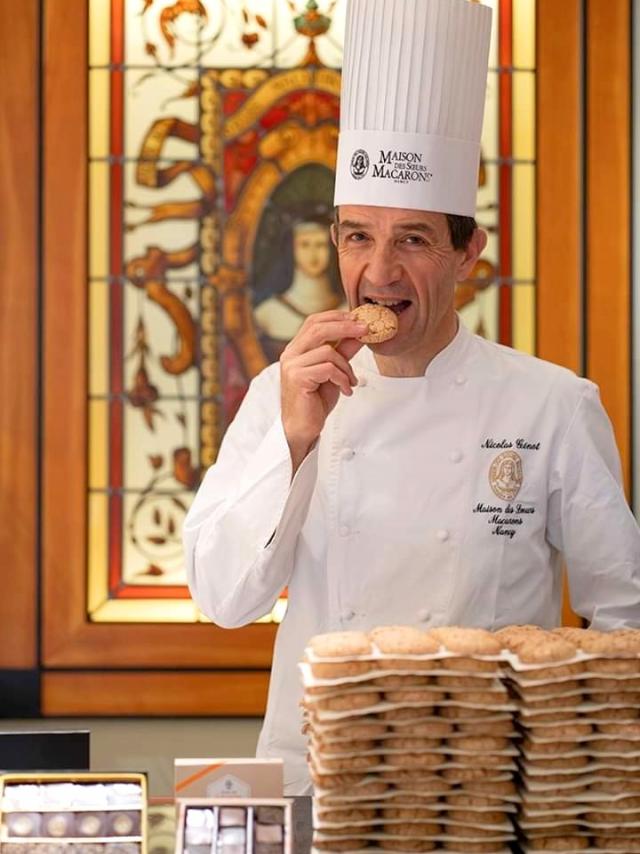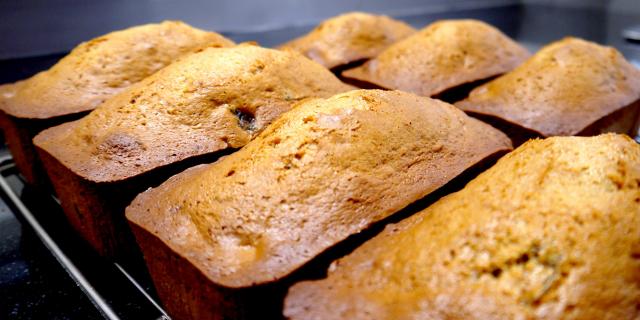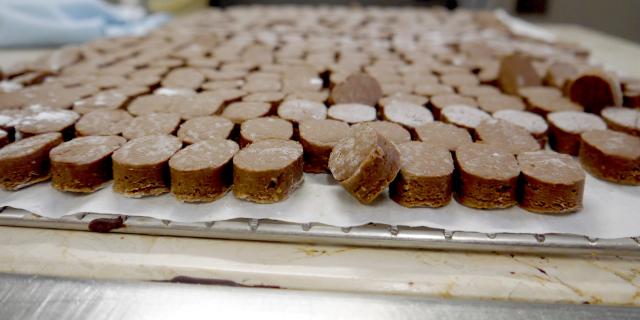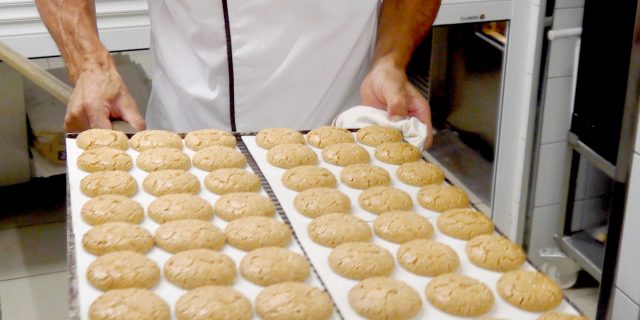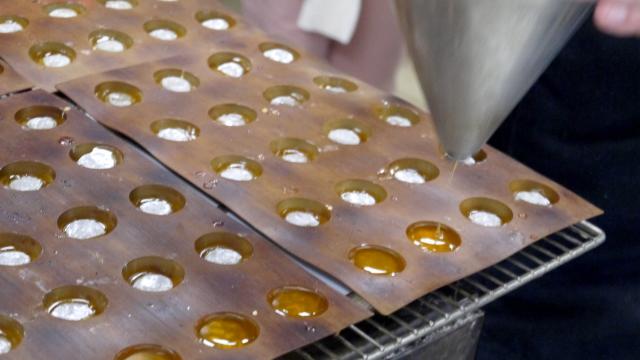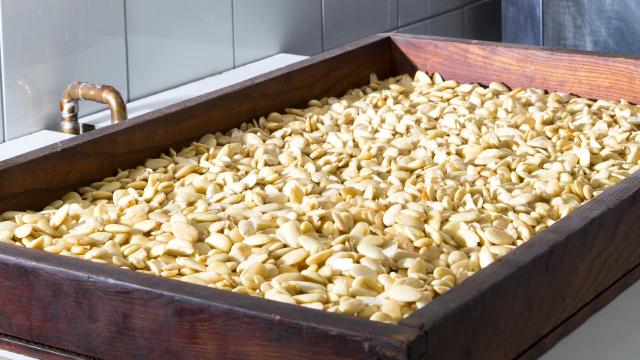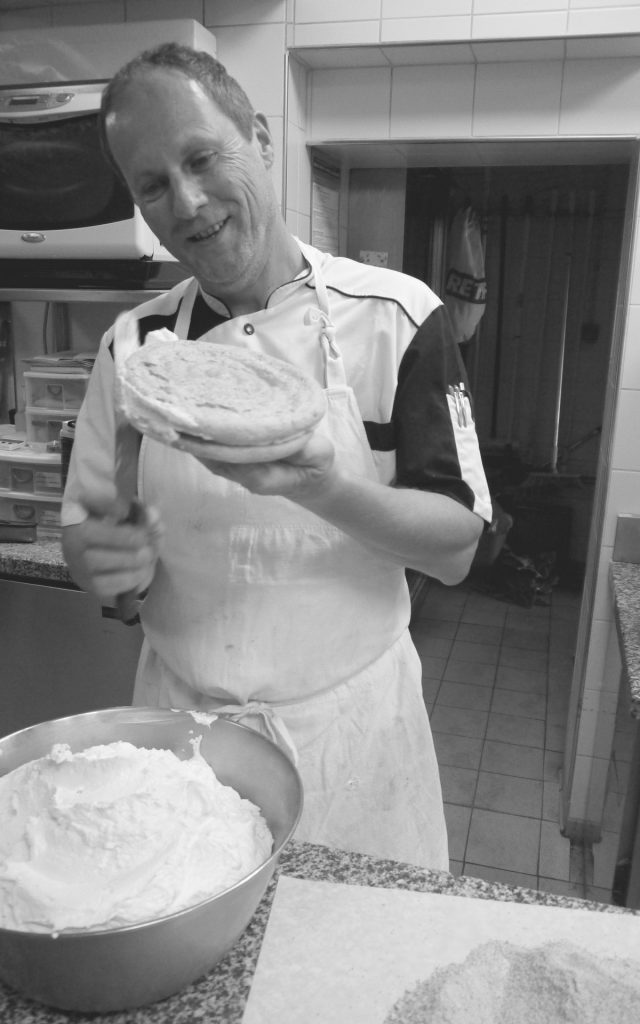Conversation with Nicolas Génot – Artisan confectioner
Nicolas Génot of the Maison des Sœurs Macarons followed a relevant, yet original career path in the trade. Born into a famous family of pastry chefs and confectioners in Nancy, he wanted to take over the helm, but chose to first study business. His father, a confectioner, had the opportunity to buy the famous Maison des Sœurs Macarons in 1991. Nicolas naturally took over the shop with his wife in 2000. He is now the guardian of the secret recipe for the Soeurs Macarons, and he trusts only himself to make them. He’s partnered with small growers of almonds in Provence to ensure the sustainability of the recipe’s essential product. Nicolas Génot is the perfect combination of a passionate craftsman and a savvy business manager.
The Maison des Sœurs Macarons shop has been on Rue Gambetta since 1850. It was originally at 10 Rue des Sœurs Macarons, where the nuns took refuge after being expelled from their convent.
NANCY PASSIONS SUCRÉES SPECIALITIES
- Sœurs Macarons
- Pain de Gênes
- Mirabelle Cake
- Florentine
- Perles de Lorraine
